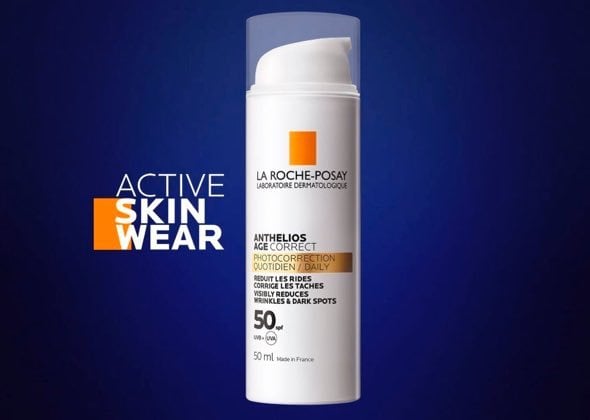WHAT HAPPENS
WHEN YOU GET A TATTOO?
To know how tattoos heal you need to know how tattoos work
Your skin is made up of three layers:
The outer epidermis provides a protective barrier. The intermediate layer – the dermis – is where all your sweat glands, hair follicles, and nerve endings do their stuff. Finally, the subcutaneous layer contains fat and connective tissue that attaches your skin to the rest of your body.
Tattoo artists use tiny, pigment-coated needles to repeatedly penetrate through the epidermis into the skin's second layer, the dermis.
Precision is key – if your tattoo is too shallow, the ink will be broken down by your skin's normal regeneration processes, and your tattoo will soon blur and fade. If it is too deep, the pigments can spread through the underlying layers of skin in an uncontrolled way, so your tattoo will lose definition. But if the needle penetration is just right, the ink will sit relatively undisturbed beneath your skin, and your tattoo will retain its intensity and clarity for a very long time provided it is properly looked after.
TATTOO HEALING TIME
Skincare and hygiene are the keys to a beautiful tattoo
Let's face it, repeatedly puncturing your skin with inky needles is an invasive process, and your body does not like it! The body’s first response is to send an army of white blood cells to try to remove the ink. Fortunately, the particles of pigment are bigger than the white blood cells, hence your body largely fails in its mission, and most of the ink is left exactly where it was placed, in the dermis. This is why tattoos last for many, many years.
Your body's reaction to being stabbed with a needle will cause the tattooed area to redden, swell, and eventually to form scabs. As with any other kind of wound, it's important to know how to care for your tattoo during its natural healing time of 2-4 weeks.
THE TATTOO HEALING PROCESS –
STAGE 1
Week 1: Keep your tattoo clean
Your tattoo artist will immediately clean and sanitize the tattooed area and then bandage or wrap it to protect against infection (which would risk tattoo scarring). She or he will tell you how long to wait before removing this initial protection. When you remove the bandage or wrap it is quite likely that your tattoo will start to ooze fluid that is a mixture of plasma, blood, and ink.
At this stage you should very carefully wash the tattooed area with lukewarm water and a gentle, soothing pH-balanced cleanser. Do not rub it with a rough cloth or towel.
For the first week, clean your tattoo twice a day to remove excess plasma. It is your plasma that forms scabs – too much of it will lead to larger scabs that may then dry and crack, leading to possible loss of definition.
Lightly pat your tattoo dry with a soft towel, and then apply a thick layer of tattoo healing cream to intensely hydrate and repair the skin barrier. Try keeping your cream in the fridge for a cooling effect.
Hygiene is paramount at this stage, but stick to short showers – soaking in a hot bath will interfere with scab formation and increase your tattoo's healing time. You should also avoid potentially contaminated environments – saunas, jacuzzis, swimming pools, or dusty spaces – as they all present an increased infection hazard.
By the end of the first week, your tattoo will have started to form scabs. While your tattoo is healing, it is important to avoid rough or tight clothing which can interfere with the scabbing process. Keep things soft and loose for the first two weeks.
Danger signs watch out for
For the first few days it is normal to experience mild pain, itching and redness. But please consult a doctor if:
- The pain is severe
- You feel feverish or generally unwell
- The redness is spreading from the immediate area
- Your tattoo is oozing white or yellow pus
THE TATTOO HEALING PROCESS –
STAGE 2
Week 2: Don't scratch that itch!
As your skin begins to heal, it is normal for it to start feeling tight and itchy. Here is our most important advice: Don't scratch!
Use a chilled tattoo soothing cream, try a cooling thermal water spray, practice meditational breathing, stand on your head, wear gloves... just do anything you can to distract yourself – and don't scratch!
During this time, the scabs will begin to drop off on their own, and your skin will start to flake and peel. Once again, resist the urge to pull away peeling strips of skin. Just keep up your cleansing and tattoo skincare routine, and let nature take its course.
While your tattoo is healing, it is at risk of developing dark pigmentation if exposed to the sun. This is known as post-inflammatory hyperpigmentation. When scabs fropped off, minimise the risk of UV damage by using a soothing cream with added SPF50+ (this works better than covering up the area, as clothes can cause friction).
THE TATTOO HEALING PROCESS –
STAGE 3
Weeks 3 - 4: Keep up the good work
By now most of the scabs and peeling skin will have fallen away. At this stage your tattoo may look disappointingly dull. This is because there is still a fine layer of dead skin cells to be shed. It may feel tempting to grab a scrubbing brush and give your tattoo a polish, but don't do it!
If you persevere with daily moisturising and skin protection this final veil of skin will be lost through natural processes, and within a few weeks your beautiful tattoo will be revealed in its full brightness and glory.
Tattoo colours are not lightfast. Ultraviolet radiation breaks down the pigment into smaller particles that are then carried away by your body's white blood cells. This is what causes tattoos to fade over time. Sunburn is your tattoo's worst enemy*. If you allow your skin to burn and peel the ink will degrade very quickly, and your tattoo will soon need a touch-up. So it's wise to get into the habit of using a soothing cream with added SPF [CICAPLAST BAUME SPF 50+] every day, to protect your tattoo from the sun.
*Sunburn also increases your risk of developing skin cancers. To learn more about how to keep yourself safe from the sun, click HERE.
THE TATTOO HEALING PROCESS –
STAGE 4
Always treat your tattoo like a work of art
When you visit a museum, do you see all the beautiful paintings lying around in the sunlight, getting scratched by passing sharp objects, and covered in dust? No way! Those works of art are protected from all conceivable hazards that might cause them to fade or degrade. To keep your precious tattoo looking vivid and fresh for many years to come, it's wise to treat it with the same respect:
- Keep your skin moisturised
- Don't scratch your tattoo
- Take care of any cuts or abrasions so as to avoid the risk of infection or scarring
- Protect your tattoo from the sun every day with a broad-spectrum high SPF cream
Here's a recap on tips to optimise your tattoo's healing process:
- Use a gentle cleansing gel to keep your tattoo clean
- Avoid potentially contaminated environments – saunas, jacuzzis, swimming pools, or dusty spaces all present an increased infection hazard
- Stick to short, warm showers
- Don’t scratch!
- Avoid tight or rough clothing – friction can cause excessive scabbing and loss of definition
- Moisturise like it's your religion! Dryness can cause excessive peeling and fading
- Practice sun protection – UV rays can fade your ink
CHOOSE THE RIGHT PRODUCTS
TO PROTECT YOUR TATTOO
CICAPLAST Lavant B5 is a gentle cleansing gel that is soothing and safe to use on fragilized skin.
CICAPLAST BAUME B5 SPF50+ is a soothing cream with broad-spectrum UVA/UVB protection, that fulfils a number of roles:
- SOOTHES – to relieve redness and itching
- REPAIRS – to repair skin barrier
- PROTECTS – to avoid colour degradation
To soothe itchy skin spritz on a fine mist of La Roche-Posay THERMAL SPRING WATER.
Ongoing UV protection is highly recommended to take care of your tattoo even when it is fully dry. ANTHELIOS POCKET SPF 50+ is portable, so you can always help shield your tattoo from sunburn.
HOW DOES TATTOO REMOVAL
WORK?
Oh no, I've made a mistake!
Tattoo removal is far from straightforward. It can be a costly, painful and lengthy process. The gold-standard treatment for tattoo removal is with a Q-switched laser. The laser beam's energy heats the tattoo pigments. This causes them to fragment into smaller particles that are then cleared away by your body's white blood cells. Treatment generally takes several sessions, and it may never completely erase the tattoo. Skin texture can be permanently changed after laser tattoo removal – you may be left with what looks like a tattoo-shaped scar. Learn about how to help scars to heal.
If you’ve made a terrible mistake, laser removal can help remove the offending ink, but when it comes to getting a tattoo, careful planning and rigorous artist selection are absolutely essential.








